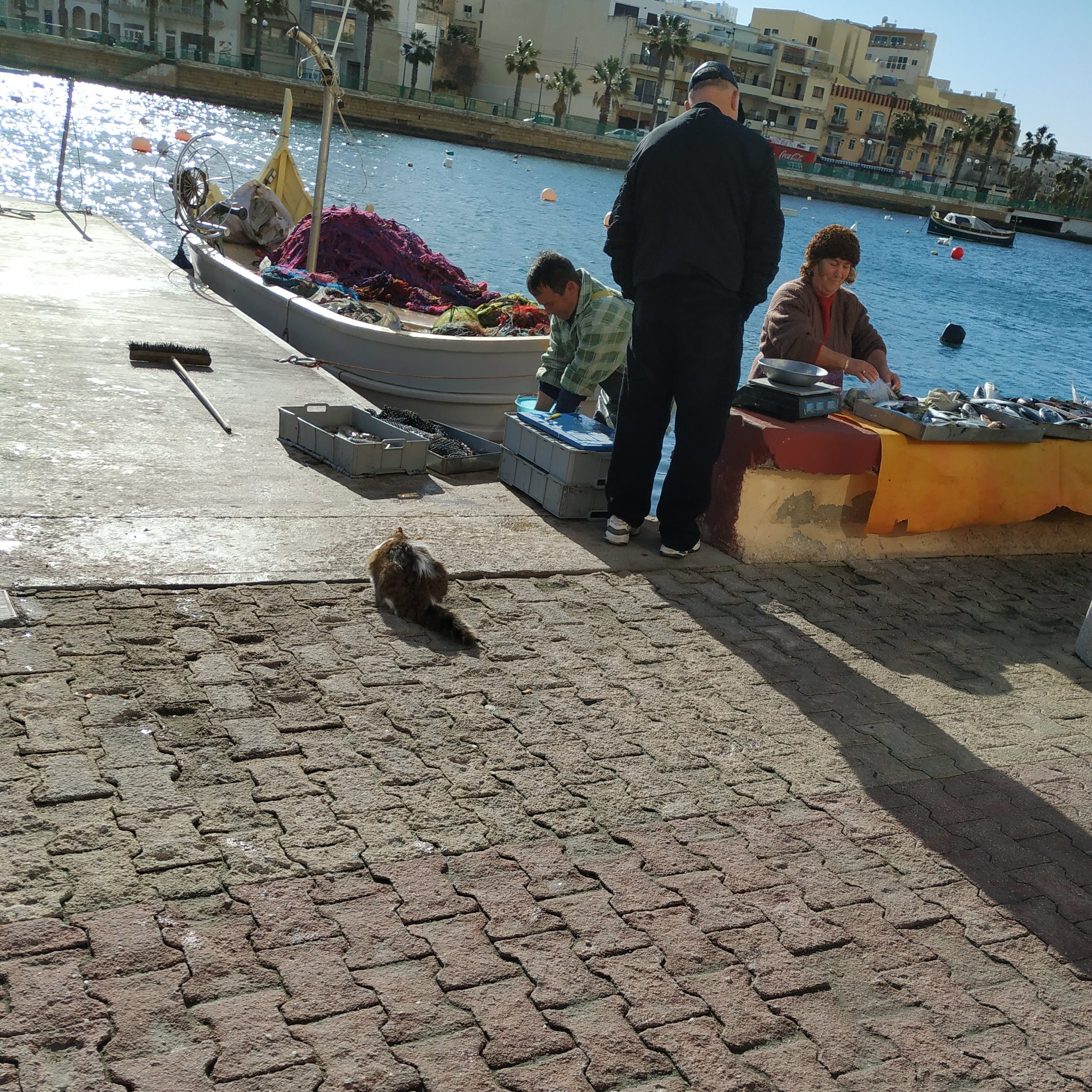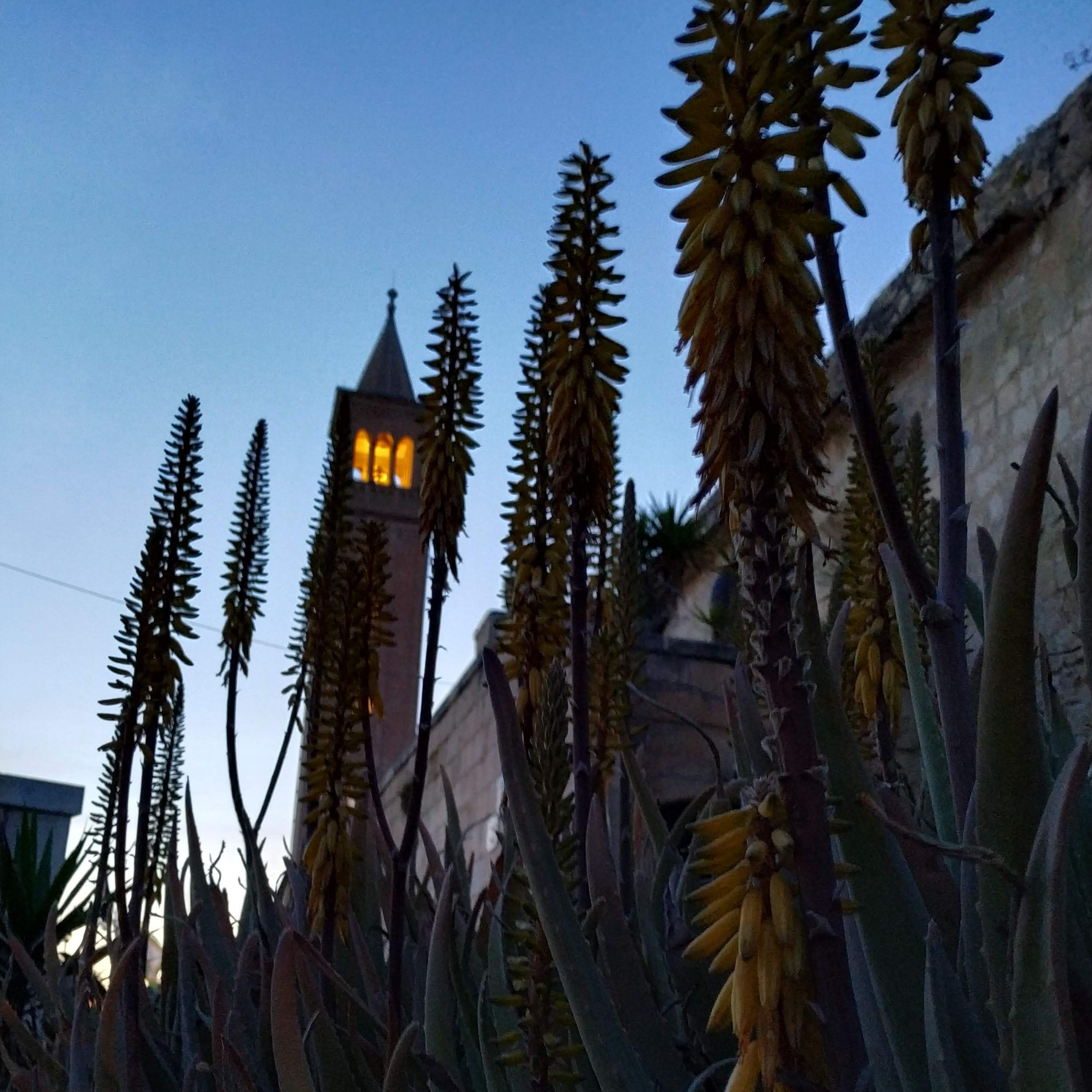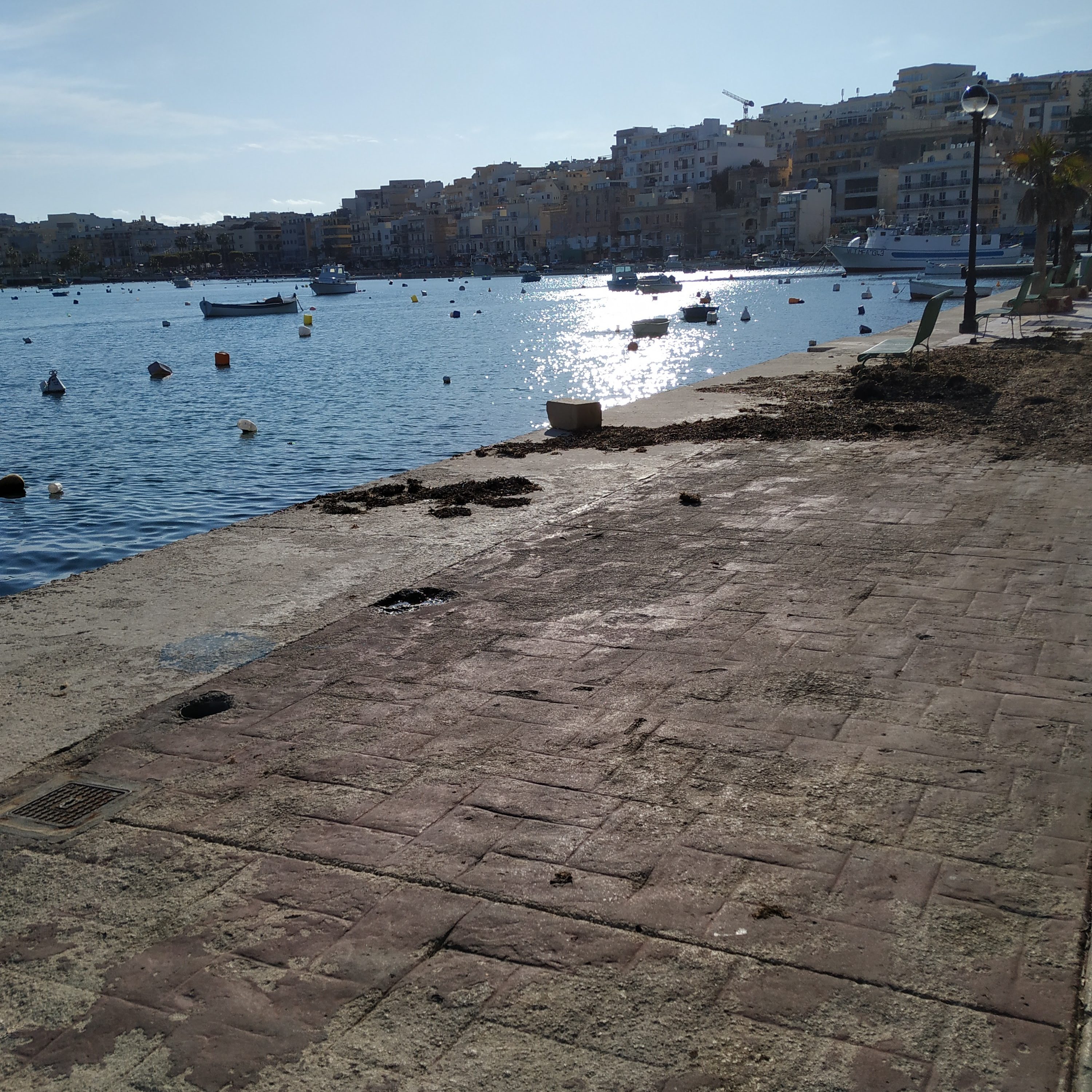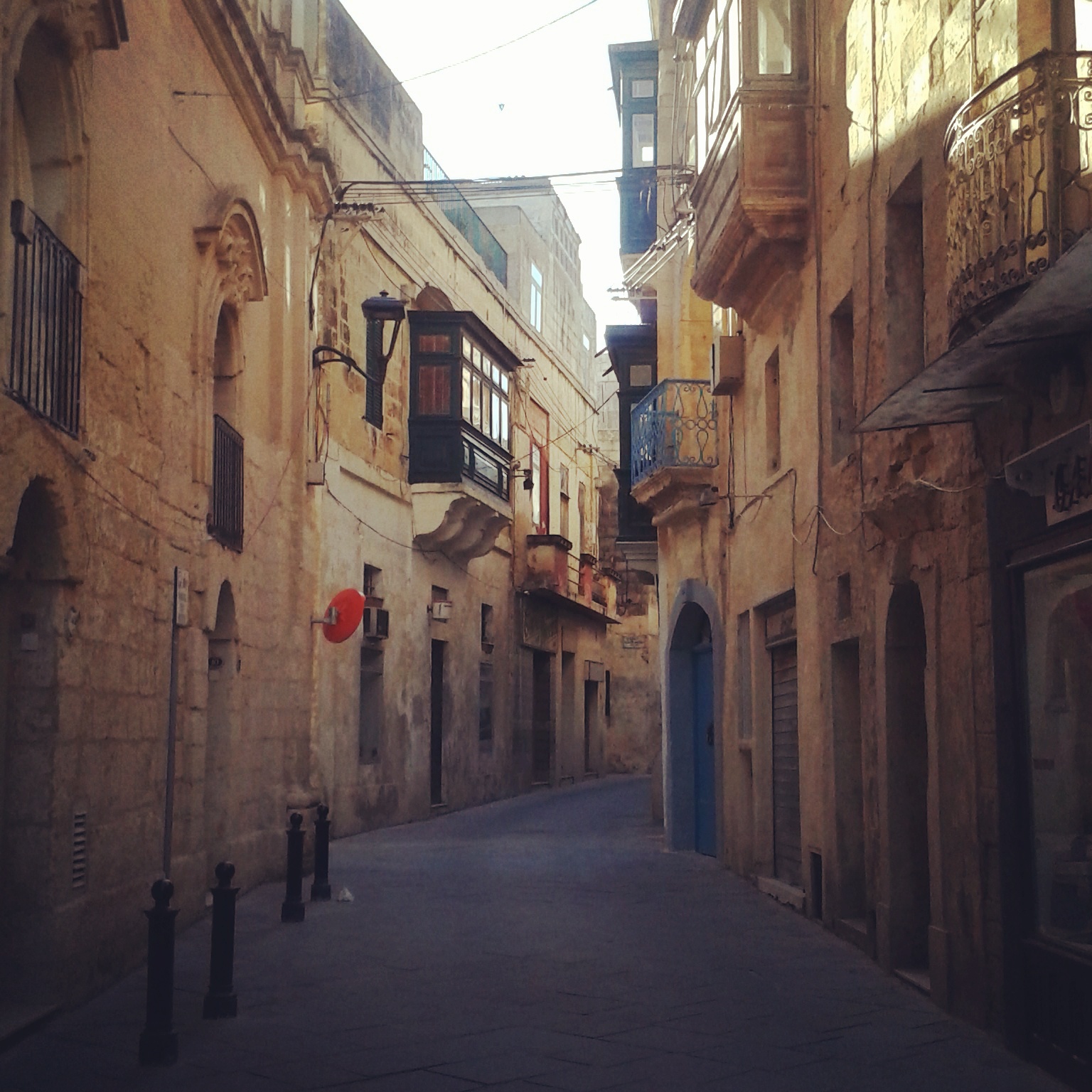Having lived in Marsascala between 2015 and 2020 and seeing the sleepy-but-bustling former fishing village once again become a target for suffocating over-development, I’ve decided to look back on some of my impressions and memories of the town, partly motivated by simple nostalgia, partly by an urge to help myself understand just why the authorities and the business class so often make it a point to single out Marsascala in their ongoing drive towards uniform devastation. This is the third blog post in an erstwhile series.
So we had a sea view.
Sullied at the edges of your peripheral vision by clumsily placed solar panels, sure, but it was there. It greeted you each morning and provided a balm in the evening during summer – then, in all of the expected ways – and during winter it allowed for a showcase of nature’s fury as the waves crashed in violent foam over the promenade.
It remains the one undeniable perk we both miss very much now that we’ve relocated from Marsascala to Rabat a year ago. No longer being able to wake up and smell the sea, taking in its blue-on-blue hue, can’t be brushed off so easily. You can only be stoic about so much.
Thinking back on this, it’s the Marsascala dawn that really stands out in the memory. The sea view is the sea view, yes, but it really comes into its own in the morning, when it allows you to greet the day with a particular sense of accessible, graspable majesty. You visualise the opposite bay like a slowly-loading act of creation: the sight of the water hits you first, with the promenade and the dotted boats appearing gradually, replotting themselves into the scenery. A wide blue expanse, from eyeline to sublime horizon, would have its meditative perks too, of course.
But there’s something charming in the way the sea is stoppered by the twist of the promenade, at least viewed from our former spot in Zonqor. (One of my smallest – and so, most precious – delights was spotting buses work their way across the promenade road from our terrace. A miniature reminder of a system that somehow, with all its faults, still manages to work. To serve people.)
You realise it all the more when you actually go down and see for yourself – when you experience the promenade as a participant, not just a mere spectator. The slippy-slide of the moss-strewn walk down by what is a de facto boat yard… a brief shot of pure vernacular beauty, sadly interrupted too soon by the parked cars that insist on crowding you before you’re allowed to emerge to the main walk, facing the church.
But for a while, it’s like you’re transported into a scene redolent of the early 20th century: the promise of an effortlessly charming Mediterranean village fulfilled. Old houses fronted by streetlamp-flanked benches, for lovers to share pizza and beer purchased from very close by. Room for families to spread out a formica table and benches for a multi-generational gathering of card games and barbecues. And despite the independent flurry of boats that frame and flank it all, room enough for an old man with a bad leg to dull his pain with diligent exercise – a refreshing dip into the sea, after which he dries himself off seated upright by the wall, before working up the strength to head back home.
Regular sights for me, but morning and evening. But it all goes by in a few seconds: a pocket of fantasy, a near-literal blink of an eye. Because after that, you’re either back to the sea-view blocks by the road, where you’ll get to enjoy the more traditional pleasures of a rocky beach which will – eventually – be joined by the Zonqor fields we fought very hard to retain back in 2015. Or you’re more likely to head about your business in the opposite direction, marching your way to the promenade and its string of shops and restaurants, along with a nail technician and real estate agents’ office (or two. Pretty sure there were at least two).

This is where the true ‘life’ of Marsascala could be said to begin: the trigger of the daily churn of people and business. In the absence of a concentrated square, we get a stretched out one: the promenade serves as a gathering point for people and a stopping point for fruit & veg trucks, at least until it sheds the skin of a village square and becomes the ‘leisure’ promenade expected by convention.
The transition point for this is the small area by the traffic lights which lead to the bus terminus – or more accurately, to the recently-refurbished, multi-generational family restaurant Grabiel – where the barriers to the sea are briefly opened up; a place that serves as a small parking space and which in winter leaves plenty of leeway for flooding – you’re often forced so skip over and otherwise creatively manouevre through large puddles of pooled and brackish sea water.
From there forward, the communal spirit becomes more solitary and leisurely. You grab an ice cream and march forward towards St Thomas Bay and its environs; an area of true sublime beauty very much compatible with tourist postcards. But it also exists in the shadow of a fallen ruin: the old Jerma Palace Hotel, now a crumbling reminder of mismanagement and institutional dithering, but also a pro-active breeding ground for some of the island’s more interesting street art, and the location for many a low-budget music video.

Its neighbour, the St Thomas Tower, taps into a similar vein of neglect and decadence: it’s thankfully no longer a pizzeria, but any historical glory it may boast feels diminished by its flaking exterior, and its proximity to the far more imposing Jerma ruin. Still, both structures are also notable for their cat colonies, often seen crossing indistriminately from one side of the street to the other, making this cat lover’s heart skip a beat each time.
If our walk from Zonqor is undertaken during the evening, this is the point at which we often begin to turn back home. That, or we extend our walk past St Thomas Bay itself – to overlook the beach during magic hour and forgive this island and its people its many shortcomings.

Read previous: Distance Does Not Mean Protection


















